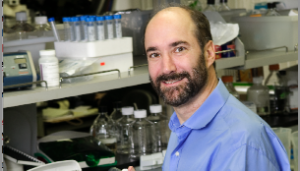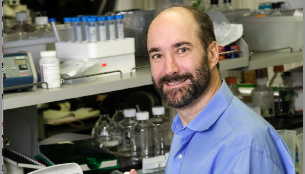By Meagan Goldman ’16
Imagine a world where everyone knows what diseases they are at risk of developing and can take steps to prevent them – or, if prevention fails, live in fear of the future. Although this world may sound a lot like the science fiction movie Gattaca, it is rapidly becoming reality as some geneticists focus their research on personal medicine.
In early March, one of these geneticists, Mike Snyder, visited Williams to speak about his research and its implications. His talk focused on how genetic data can be used in healthcare to diagnose sick individuals and, more revolutionarily, to predict risks in healthy individuals.
Snyder is the poster child of his own research. By analyzing what he coined his Integrative Personal Omics Profile (iPOP), Snyder discovered he has a high risk for type II diabetes. At the time of this discovery, he knew of no family history of diabetes and he led a relatively healthy lifestyle. The knowledge prompted him to test his blood sugar and immediately change his eating and exercising habits when he found he was pre-diabetic.

In Integrative Personal Omics Profiling, Snyder and his team analyze an individual’s genome (sum total of DNA), RNA, proteins, immune system, metabolism, microbiome (the bacteria that live on the skin and in the mouth, gut, and urine) and other systems. In their analysis, the researchers search the genome for mutations known to cause diseases. According to Snyder, individuals have an average of 50-90 disease-causing mutations. Whether or not these mutations will actually manifest as diseases is less certain. Factors such as gender, race, and other genes can affect an individual’s risk, which Snyder and his team take into account.
The other components of the iPOP, such as an individual’s proteins, RNAs, antibodies, and metabolism, are analyzed in healthy people for future reference when they become sick. Exploring the changes that occur between the healthy and diseased states of these systems may help the researchers understand the causes of diseases.
Snyder has now expanded his studies from himself to a broader group of individuals. In his talk, he noted how worthwhile his research is when he can help people. For example, in a recent study of a group of healthy Europeans and Asians, he found one woman with a BRACA1 mutation, which is known to cause breast and ovarian cancer. She will now take preventative measures such as enhanced screening to detect cancers.
While this knowledge might be welcome to some, Snyder admits that worriers should not get their genomes sequenced. He also notes that while genome sequencing and analyses like iPOP may have once seemed unattainable to the average person, costs are rapidly falling. According to Snyder, the question in the future will not be if, but instead whether; it will be important for all individuals to decide whether the knowledge bestowed by their bodies is a blessing or a burden.
